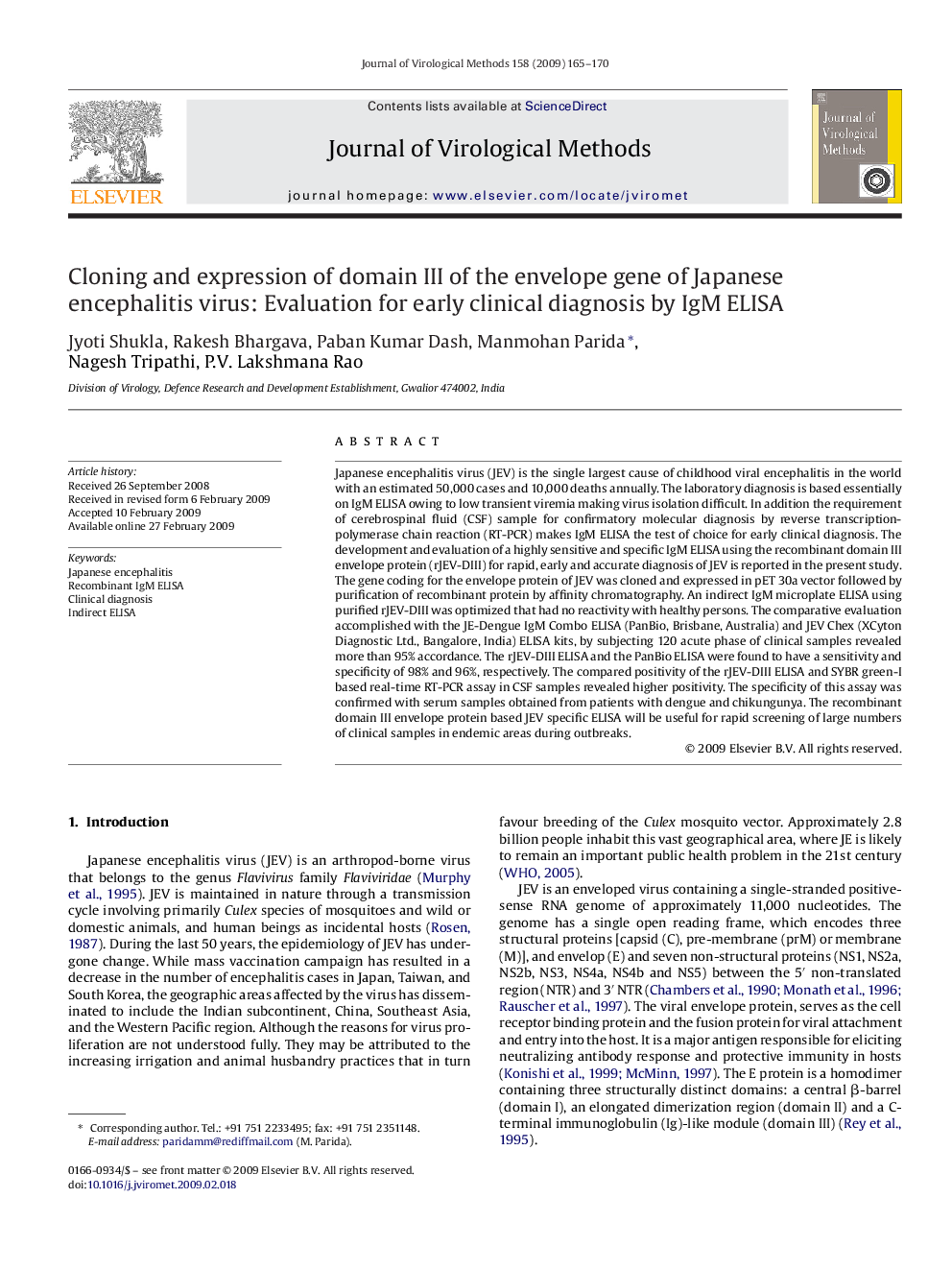| Article ID | Journal | Published Year | Pages | File Type |
|---|---|---|---|---|
| 3407533 | Journal of Virological Methods | 2009 | 6 Pages |
Japanese encephalitis virus (JEV) is the single largest cause of childhood viral encephalitis in the world with an estimated 50,000 cases and 10,000 deaths annually. The laboratory diagnosis is based essentially on IgM ELISA owing to low transient viremia making virus isolation difficult. In addition the requirement of cerebrospinal fluid (CSF) sample for confirmatory molecular diagnosis by reverse transcription-polymerase chain reaction (RT-PCR) makes IgM ELISA the test of choice for early clinical diagnosis. The development and evaluation of a highly sensitive and specific IgM ELISA using the recombinant domain III envelope protein (rJEV-DIII) for rapid, early and accurate diagnosis of JEV is reported in the present study. The gene coding for the envelope protein of JEV was cloned and expressed in pET 30a vector followed by purification of recombinant protein by affinity chromatography. An indirect IgM microplate ELISA using purified rJEV-DIII was optimized that had no reactivity with healthy persons. The comparative evaluation accomplished with the JE-Dengue IgM Combo ELISA (PanBio, Brisbane, Australia) and JEV Chex (XCyton Diagnostic Ltd., Bangalore, India) ELISA kits, by subjecting 120 acute phase of clinical samples revealed more than 95% accordance. The rJEV-DIII ELISA and the PanBio ELISA were found to have a sensitivity and specificity of 98% and 96%, respectively. The compared positivity of the rJEV-DIII ELISA and SYBR green-I based real-time RT-PCR assay in CSF samples revealed higher positivity. The specificity of this assay was confirmed with serum samples obtained from patients with dengue and chikungunya. The recombinant domain III envelope protein based JEV specific ELISA will be useful for rapid screening of large numbers of clinical samples in endemic areas during outbreaks.
